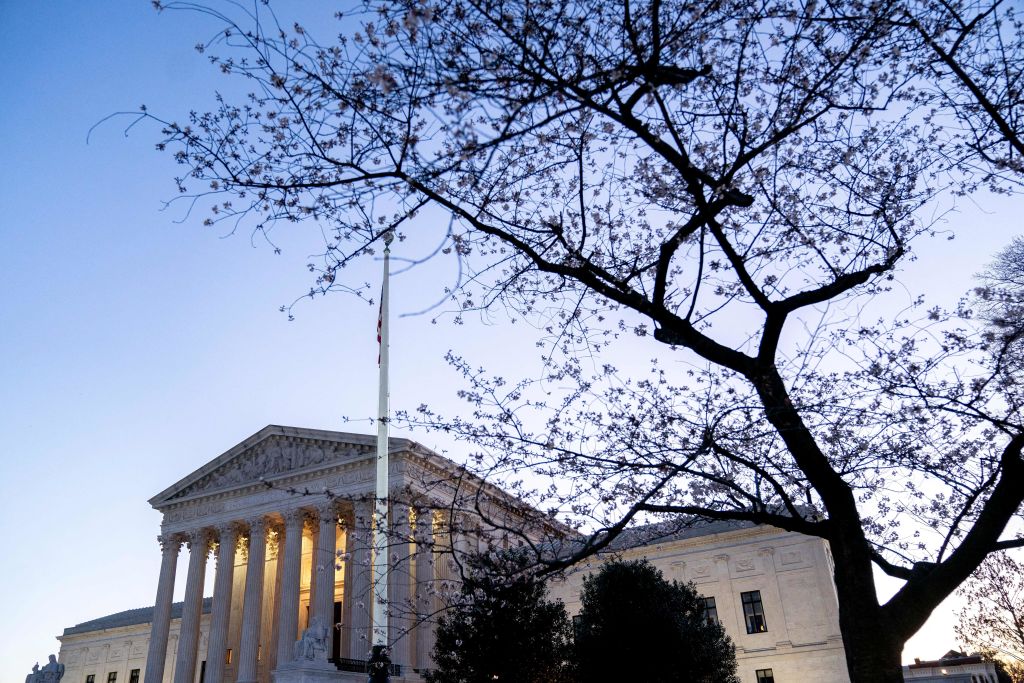The anticipated criminal law decisions and arguments for the rest of this term
SCOTUStoday for Wednesday, February 18
More news
The future of SEC enforcement authority
Please note that SCOTUS Outside Opinions constitute the views of outside contributors and do not necessarily reflect the opinions of SCOTUSblog or its staff.
In April, the Supreme Court will hear Sripetch v. Securities and Exchange Commission. This case has gotten less attention than many other cases this term. But its outcome could have significant consequences for the Securities and Exchange Commission, one of the country’s most influential and powerful federal agencies, by limiting its discretion to punish wrongdoers and therefore reining in some of this agency’s considerable – and more controversial – authority.
Continue ReadingOur favorite SCOTUS quotes
Somewhat to our surprise, one of the most popular features of the SCOTUStoday newsletter (which you should sign up for, if you haven’t already) has turned out to be the SCOTUS Quotes.
Although we didn’t include these in the first few editions of SCOTUStoday, since Oct. 6 we’ve brought you around 80 such quotations, mostly consisting of remarks made by Supreme Court justices either at oral argument or in their opinions.
In general, the quotes we’ve used fall into two buckets: (1) humor from the bench or (2) discussion of a justice’s legal philosophy. Without further ado, here are a few of our favorites from both categories.
Continue ReadingRepublicans urge Supreme Court to restore New York congressional map
A Republican member of Congress, a group of voters, and New York election officials asked the Supreme Court to allow the state to proceed with the 2026 elections using its existing congressional map. This followed an order by a state court barring New York from using the map, and requiring the state to redraw the map because, according to the state court, it diluted the votes of Blacks and Latinos in the only congressional district in New York City represented by a Republican, Rep. Nicole Malliotakis. Malliotakis told the justices that the state court’s decision would require the state “to adopt an unconstitutional racial gerrymander” – that is, to sort voters based on race. Peter Kosinski, a Republican co-chair of the state’s board of elections, echoed Malliotakis’ concerns, telling the court that if it does not put the lower court’s ruling on hold “by February 23, 2026, New York’s congressional elections will be thrown into chaos and uncertainty.”
The district at the center of the dispute is New York’s 11th Congressional District, which is based on Staten Island but also extends into parts of southern Brooklyn. In October 2025, a group of voters went to state court, where they argued that the district’s boundaries violated the state’s constitution by diluting the votes of Black and Latino voters, who now make up approximately 30% of the population of Staten Island, while the population of white voters has dropped to 56%. Specifically, they contended, the district’s boundaries did not give its black and Latino residents an equal opportunity to elect a representative of their choice.
Continue ReadingJustice Scalia ten years later
AV Ristorante is a recurring series by Brian Fitzpatrick.
Ten years ago today, my old boss Supreme Court Justice Antonin “Nino” Scalia passed away. At the time of his death, it was clear that he was already one of the most influential justices ever to serve on the court. Today, this statement is even more true. No matter where you look – courtrooms, law firms, even law school classrooms – Scalia and his ideas are ubiquitous.
Continue ReadingA guide to some of the briefs in support of ending birthright citizenship
The Supreme Court will hear oral arguments on April 1 in the challenge to President Donald Trump’s executive order seeking to end the guarantee of citizenship to virtually everyone born in the United States. Like another high-profile case argued earlier this term, involving the challenge to Trump’s tariffs, the dispute has thus far garnered a large number of amicus or “friend of the court” briefs – 18 in support of the Trump administration and one that, although theoretically in support of neither side, tends to favor the administration.
I highlight some of the arguments made in the briefs supporting the Trump administration below. When the “friend of the court” briefs supporting the challengers are all filed later this month, I will discuss those in a separate story.
Continue Reading